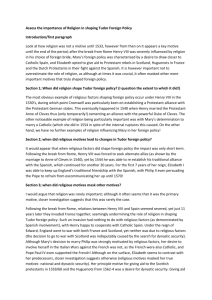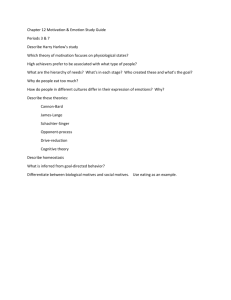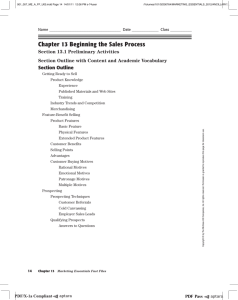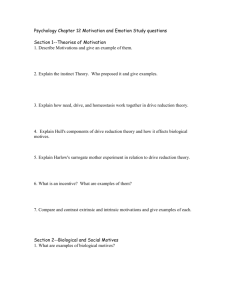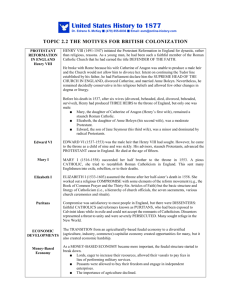Assess the importance of Religion in shaping Tudor Foreign Policy
advertisement
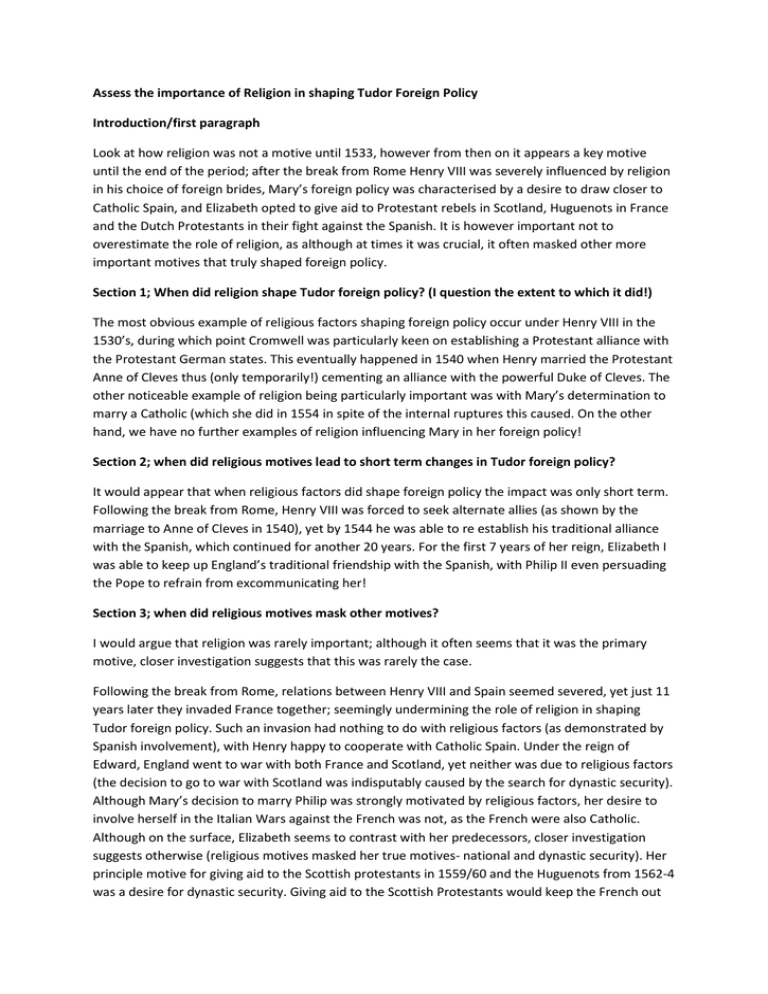
Assess the importance of Religion in shaping Tudor Foreign Policy Introduction/first paragraph Look at how religion was not a motive until 1533, however from then on it appears a key motive until the end of the period; after the break from Rome Henry VIII was severely influenced by religion in his choice of foreign brides, Mary’s foreign policy was characterised by a desire to draw closer to Catholic Spain, and Elizabeth opted to give aid to Protestant rebels in Scotland, Huguenots in France and the Dutch Protestants in their fight against the Spanish. It is however important not to overestimate the role of religion, as although at times it was crucial, it often masked other more important motives that truly shaped foreign policy. Section 1; When did religion shape Tudor foreign policy? (I question the extent to which it did!) The most obvious example of religious factors shaping foreign policy occur under Henry VIII in the 1530’s, during which point Cromwell was particularly keen on establishing a Protestant alliance with the Protestant German states. This eventually happened in 1540 when Henry married the Protestant Anne of Cleves thus (only temporarily!) cementing an alliance with the powerful Duke of Cleves. The other noticeable example of religion being particularly important was with Mary’s determination to marry a Catholic (which she did in 1554 in spite of the internal ruptures this caused. On the other hand, we have no further examples of religion influencing Mary in her foreign policy! Section 2; when did religious motives lead to short term changes in Tudor foreign policy? It would appear that when religious factors did shape foreign policy the impact was only short term. Following the break from Rome, Henry VIII was forced to seek alternate allies (as shown by the marriage to Anne of Cleves in 1540), yet by 1544 he was able to re establish his traditional alliance with the Spanish, which continued for another 20 years. For the first 7 years of her reign, Elizabeth I was able to keep up England’s traditional friendship with the Spanish, with Philip II even persuading the Pope to refrain from excommunicating her! Section 3; when did religious motives mask other motives? I would argue that religion was rarely important; although it often seems that it was the primary motive, closer investigation suggests that this was rarely the case. Following the break from Rome, relations between Henry VIII and Spain seemed severed, yet just 11 years later they invaded France together; seemingly undermining the role of religion in shaping Tudor foreign policy. Such an invasion had nothing to do with religious factors (as demonstrated by Spanish involvement), with Henry happy to cooperate with Catholic Spain. Under the reign of Edward, England went to war with both France and Scotland, yet neither was due to religious factors (the decision to go to war with Scotland was indisputably caused by the search for dynastic security). Although Mary’s decision to marry Philip was strongly motivated by religious factors, her desire to involve herself in the Italian Wars against the French was not, as the French were also Catholic. Although on the surface, Elizabeth seems to contrast with her predecessors, closer investigation suggests otherwise (religious motives masked her true motives- national and dynastic security). Her principle motive for giving aid to the Scottish protestants in 1559/60 and the Huguenots from 1562-4 was a desire for dynastic security. Giving aid to the Scottish Protestants would keep the French out of Scotland (reducing the dynastic threat from Mary Queen of Scots). Similarly, giving aid to the Huguenots was aimed at reducing the power of the Guise within France, making it more difficult for them to support Mary Queen of Scots and uphold her claim to the English throne. Although Elizabeth’s involvement in the Netherlands later on in her reign was not due to dynastic security any more, her main motive was undoubtedly national security, as she sought to prevent the Spanish from gaining Dutch naval bases that could be used as bases to attack England from. The fact that such national security motives outweighed religious motives is best demonstrated by the fact that she started withdrawing troops from Netherlands after the Spanish had been defeated at Groningen (thus making it very unlikely the Spanish would be a threat anymore) without demanding any religious concessions within the Netherlands. Section 4 How does religion compare to other motives? Section 5 Can you identify any trends e.g. when was it important? When was it not? Why may this be the case? Conclusion
